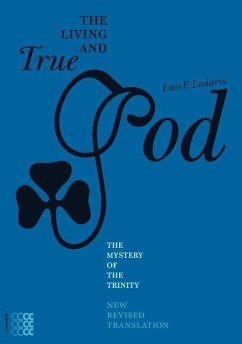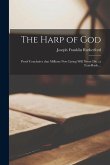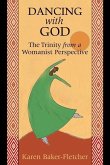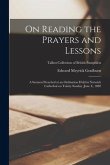This is a New Revised Edition in which the Author explains how the Trinity (one God in three persons, Father, Son, and Holy Spirit) is the central mystery of the Christian faith that enlightens all other mysteries of the faith. An understanding of the Trinity is essential for the protection and defense of the divine/human person of Jesus Christ and his saving work. This book documents the historical development of the doctrine of the Trinity and its significance for the Christian faith. In a broad and systematic way, Ladaria traces the debates within the early Christian church as the concept of the Trinity developed. He also reflects on the great masters of church tradition concerning their understanding of the Trinity and is in dialogue with various contemporary theologians on this subject. This book has been written especially for theological students and professors as an aid in grasping the Trinitarian formulation both historically and theologically and to assist in deepening their faith and reflection in the mystery of God.


![The Perfect Law of Liberty [microform]: a Sermon, Preached at Trinity Church, Streetsville, on Sunday, XIIth July, M.DCCC.XLVI The Perfect Law of Liberty [microform]: a Sermon, Preached at Trinity Church, Streetsville, on Sunday, XIIth July, M.DCCC.XLVI](https://bilder.buecher.de/produkte/65/65593/65593323m.jpg)

![A Sermon Preached in the Chapel of Trinity College, Toronto, on Sunday, June 28, 1857 [microform] A Sermon Preached in the Chapel of Trinity College, Toronto, on Sunday, June 28, 1857 [microform]](https://bilder.buecher.de/produkte/66/66197/66197036m.jpg)
![Trinity Church and Its Founders [microform]: a Sermon by the Rev. I.W.D. Gray, D.D. ... Preached on New Year's Day, 1854, and Published at the Request Trinity Church and Its Founders [microform]: a Sermon by the Rev. I.W.D. Gray, D.D. ... Preached on New Year's Day, 1854, and Published at the Request](https://bilder.buecher.de/produkte/66/66184/66184635m.jpg)
![Spiritual Famine [microform]: a Sermon Preached Before the Diocesan Church Society of New Brunswick in Trinity Church, St. John on Thursday July 6, Spiritual Famine [microform]: a Sermon Preached Before the Diocesan Church Society of New Brunswick in Trinity Church, St. John on Thursday July 6,](https://bilder.buecher.de/produkte/65/65510/65510012m.jpg)
